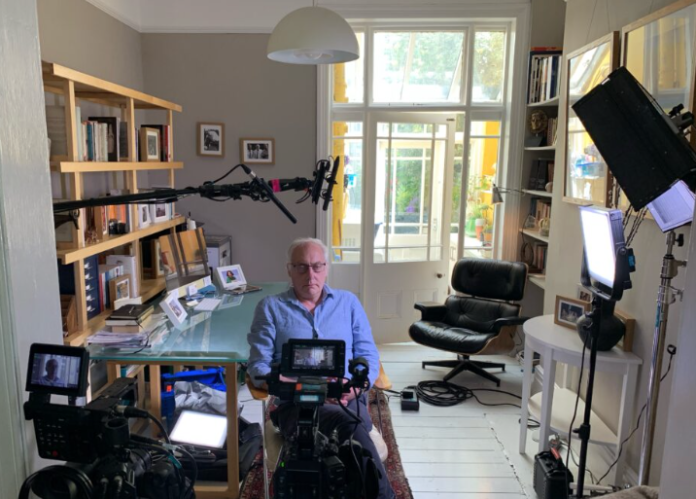- ‘Lies, damned lies etc…’ - 13th February 2026
- Missing in action - 12th February 2026
- Travel news again - 11th February 2026
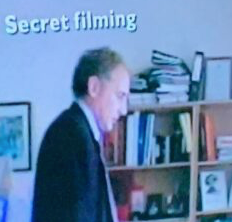 As attacks grow around the world on a free media, here our Editor, Welshman Phil Parry, who has spent 39 years in journalism, stresses the vital importance of allowing unfettered inquiry to promote a healthy democracy.
As attacks grow around the world on a free media, here our Editor, Welshman Phil Parry, who has spent 39 years in journalism, stresses the vital importance of allowing unfettered inquiry to promote a healthy democracy.
Earlier he described how he was assisted in breaking into the South Wales Echo office car when he was a cub reporter, recalled his early career as a journalist, the importance of experience in the job, and making clear that the‘calls’ to emergency services as well as court cases are central to any media operation.
He has also explored how poorly paid most journalism is when trainee reporters had to live in squalid flats, the vital role of expenses, and about one of his most important stories on the now-scrapped 53 year-old BBC Wales TV Current Affairs series, Week In Week Out (WIWO), which won an award even after it was axed, long after his career really took off.
 Phil has explained too how crucial it is actually to speak to people, the virtue of speed as well as accuracy, why knowledge of ‘history’ is vital, how certain material was removed from TV Current Affairs programmes when secret cameras had to be used, and some of those he has interviewed.
Phil has explained too how crucial it is actually to speak to people, the virtue of speed as well as accuracy, why knowledge of ‘history’ is vital, how certain material was removed from TV Current Affairs programmes when secret cameras had to be used, and some of those he has interviewed.
He has disclosed as well why investigative journalism is needed now more than ever although others have different opinions, how the current coronavirus (Covid-19) lockdown is playing havoc with media schedules, and the importance of the hugely lower average age of some political leaders compared with when he started reporting.
Sadly I must, again, endorse the importance of journalistic inquiry, as attacks grow on the media.
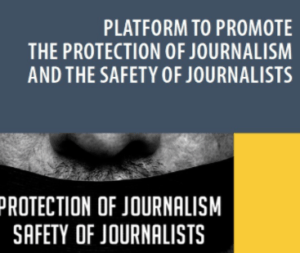 Last April the annual report from the Council of Europe Platform on media freedom in Europe, showed that physical attacks on journalists increased dramatically over 2021. Their publication, Defending Press Freedom in Times of Tension and Conflict, revealed that the number of cases involving concern about the safety and physical integrity of journalists jumped by 51 per cent year-on-year, with many of the attacks taking place during public protests.
Last April the annual report from the Council of Europe Platform on media freedom in Europe, showed that physical attacks on journalists increased dramatically over 2021. Their publication, Defending Press Freedom in Times of Tension and Conflict, revealed that the number of cases involving concern about the safety and physical integrity of journalists jumped by 51 per cent year-on-year, with many of the attacks taking place during public protests.
Over the years we have seen a relentless rise in assaults on journalists, as they have tried to report the truth of events. From 2016 to the end of 2020, UNESCO recorded 400 killings of journalists, while the global rate of impunity for those doing them is worryingly high: nine times out of ten, the case remains unresolved.
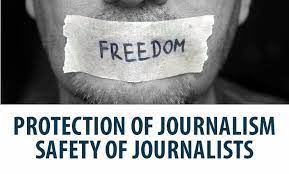 Where the number of journalist deaths is high, so is being effectively allowed to carry them out by the state, creating a continuous cycle of violence, and some regimes appear not to like journalistic inquiry.
Where the number of journalist deaths is high, so is being effectively allowed to carry them out by the state, creating a continuous cycle of violence, and some regimes appear not to like journalistic inquiry.
After Slovenia seceded from Yugoslavia in 1991, it gave Radio Television of Slovenia (RTV-SLO) a mandate to report independently, unlike the state propaganda that passed for news under communism. But the government there is now refusing to pay RTV-SLO’s budget, and wants to pass a new media law that will make it easier to control.

The prime example of the state being in charge of the media is, naturally, Russia which is very much in the news now, following the unprovoked invasion of Ukraine.
A Russian journalist who accused its army of deliberately shelling a maternity hospital in the Ukrainian city of Mariupol was sentenced in absentia to eight years in jail.
A Moscow court found Alexander Nevzorov guilty of spreading ‘fake news’ about the Russian army. The court said he would serve his term in a penal colony if he ever returned to Russia.

RT (Russia Today) (see story soon) has been accused of being a mouthpiece for Vladimir Putin. By the mid-2000s Russian ‘news’ shows’ agendas were being set at government-led meetings.
When Viktor Orban won power in Hungary in 2010 he adapted Mr Putin’s playbook, transforming the state media agency MTVA into a propaganda organ. The group was restructured into a shell company in a fashion that exempts it from the law governing public media, and during the European Parliament elections in 2019, editors at MTVA were recorded instructing reporters to favour Mr Orban’s Fidesz party.
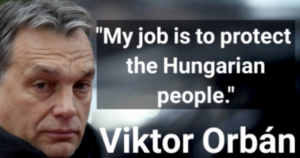
Poland’s Law and Justice (PLS) party followed Mr Orban’s example when it won power in 2015, and quickly turned TVP, the public television network, into a bullhorn for the party. The network championed campaigns against gay rights and demonised the opposition mayor of Gdansk. After he was assassinated by an extremist in 2019, a court told TVP to pay damages, but it has not complied.

In Belarus the situation is also appalling. At least 16 journalists there are behind bars, and riot police are singling out reporters for arrests and beatings at protests as the media is intimidated.
The embattled dictator Alexander Lukashenko, forced a Ryanair passenger plane to make an unscheduled stop in his capital in order to arrest the editor of an internet channel, NEXTA, that has been reporting on his crackdown.

Roman Protasevich was taken off the plane, which was flying from Athens to Vilnius, the Lithuanian capital. Citing what it said was ‘evidence’ that there were explosives on board, the authorities forced the aircraft to land in Minsk as it passed through Belarusian airspace on its way to neighbouring Lithuania, sending a MiG fighter plane to escort the Ryanair jet down. The state news agency later reported that no explosives had been found, and it seems certain that the incident was invented purely as a way of arresting the journalist.

The worrying news came after Marina Zolotova, the editor of Tut.by, an independent news website in the country, said: “Blue press jackets and press badges have become targets. When journalists go to cover a protest they cannot be sure that they will come home. This is a real war by the authorities against independent journalism and their own people.” It is clear that Mr Lukashenko is waging a war against journalists who have dared to report on his regime’s brutal crackdown against peaceful protesters. At least eight protesters have been killed and hundreds more have alleged torture and rape, in police custody.

Among the most high-profile of those in prison is Yekaterina Bakhvalova, who was arrested as she filmed riot police firing stun grenades into a crowd demonstrating against the death in police custody of a fellow protester.
Around the world it appears to be becoming worse for media freedom and investigative journalism – while dumbed-down ‘news’ is seemingly wanted by authorities everywhere.
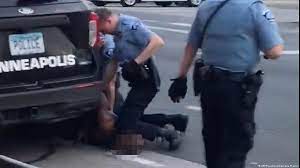
Dozens of reporters covering the anti-racism protests after the killing of the unarmed black man George Floyd that rocked the US, were apparently targeted by security forces using tear gas, rubber bullets and pepper spray. In many cases, the reporters said they were attacked despite showing clear press credentials.
Such assaults “are an unacceptable attempt to intimidate (reporters)“, said the Committee to Protect Journalists, a New York-based lobbying group. Attacks on journalists carried out by protesters have also been reported. The arrest of a CNN news crew live on air in Minneapolis, first drew global attention to how law enforcement authorities in the city were treating reporters covering the protests.
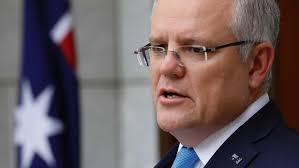
Meanwhile the Australian Prime Minister Scott Morrison has asked his embassy in Washington to look into the use of force by police against an Australian news crew, as officers dispersed protesters. It came after dozens of attacks on journalists and media crews across America over a single weekend were reported on social media.
In total the US Press Freedom Tracker, a non-profit project, says it is examining more than 100 “press freedom violations” at protests. About 90 cases involve attacks.
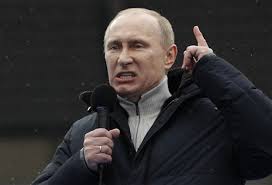
In Russia a special website is devoted to the numbers that have been killed for simply doing their jobs. Sometimes the persecution has official backing. Mr Putin recently signed a law that will allow Russia to declare journalists and bloggers as “foreign agents” in a move that critics say will allow the Kremlin to target government critics.
Under the vaguely worded law, Russians and foreigners who work with the media or distribute their content and receive money from abroad would be declared foreign agents, potentially exposing journalists, their sources, or even those who share material on social networks to foreign agent status.

Even in (relatively) stable countries there is cause for alarm.
The Chief Reporter for the Mail, the local newspaper at Barrow-in-Furness in Cumbria, Amy Fenton, was forced to flee her home after receiving a torrent of insults and threats when she reported a local court case. Police said there was a ‘credible risk to her life and that of her child’.
Investigative journalists (like me) are particularly vulnerable, and even when the law IS brought to bear in democracies, it highlights the risks that are run.
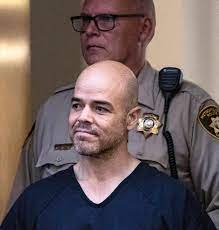
Last year the Las Vegas official, Robert Telles, was charged with murdering the investigative journalist, Jeff German.
This trend today is worrying – people seem to become angry when facts are brought out. But they need to be…
The memories of Phil’s extraordinary decades long award-winning career in journalism (when stories often upset his targets) as he was gripped by the rare neurological disabling condition Hereditary Spastic Paraplegia (HSP), have been released in a major book ‘A Good Story’. Order it now.

A different book, though, has not been published, because it was to have included names.
‘Free to attack – second round’ comes soon, where Phil describes the awful experiences he endures.
Tomorrow – why alarming news that a controversial battery firm went under, and plans to save some of it now delayed because of greater scrutiny, once again highlight how The Eye were alone in first revealing that the company was established by a man convicted of tax fraud, and which ditched a site in South Wales, despite the fact that its proposals had been greeted with huge fanfare by politicians and reporters in the mainstream media.








